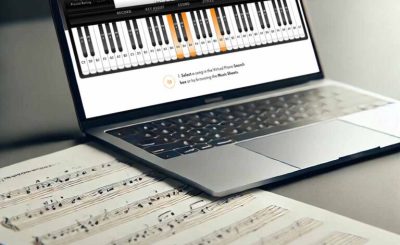Introduction
For musicians, dancers, and performers, a rehearsal studio is more than just a practice space—it’s where ideas are refined and performances are perfected. The right equipment makes all the difference, ensuring that rehearsals are productive and closely replicate live performance conditions. A professional space like Studio Base Bin offers not only acoustically treated rooms but also reliable gear tailored to artists’ needs. Here’s what you can typically expect from a high-quality rehearsal studio.
Professional Sound Systems
Sound reinforcement is essential for rehearsals, especially for bands and vocalists. Quality studios usually provide:
- PA Systems – Full-range speakers capable of delivering clear sound across the room.
- Mixing Consoles – Allowing musicians to balance vocals and instruments effectively.
- Monitors – Stage wedges or in-ear monitor options for real-time feedback.
These systems help performers hear themselves clearly, replicating live show conditions.
Microphones and Stands
A rehearsal studio should include a variety of microphones suitable for different uses:
- Dynamic Mics – Durable and versatile, ideal for vocals and amplified instruments.
- Condenser Mics – More sensitive, great for capturing detail in vocals or acoustic instruments.
- Mic Stands and Boom Arms – Adjustable equipment for flexible positioning during rehearsals.
This ensures that both singers and instrumentalists can rehearse effectively.
Amplifiers and Instrument Support
Studios catering to bands typically provide amplifiers to avoid the need for musicians to carry heavy gear. Common inclusions are:
- Guitar Amps – Clean and distortion-ready models.
- Bass Amps – Built for low-frequency depth and clarity.
- Keyboard Amps – Ensuring digital and analog keyboards cut through the mix.
Drum Kits and Percussion Gear
Drums are among the hardest instruments to transport, so most professional rehearsal studios provide:
- Full Acoustic Drum Kits – With bass drum, toms, snare, hi-hat, and cymbals.
- Hardware and Pedals – Including stands, mounts, and kick pedals.
- Percussion Add-Ons – Some studios also offer congas, bongos, or auxiliary percussion.
Musicians usually bring their own sticks, cymbals, or custom components for personal preference.
Keyboards and Pianos
For artists who require piano or keyboard support, many rehearsal studios offer:
- Weighted Digital Pianos – Replicating the feel of an acoustic piano.
- Professional Synthesizers or Workstations – For electronic music producers and bands.
This eliminates the need to transport bulky instruments for every rehearsal.
Recording and Playback Tools
Some rehearsal spaces provide recording capabilities to review performances later:
- Multi-Track Recorders or DAWs – Capture each instrument separately.
- Basic Playback Systems – Allow bands to listen back to practice sessions.
- Video Recording Options – Useful for dancers or performers refining choreography.
Having these tools on hand helps artists track progress and prepare for live shows or studio recordings.
Comfort and Practical Extras
Beyond core gear, professional rehearsal studios ensure comfort and convenience with:
- Seating and Music Stands – For vocalists, orchestras, or reading sheet music.
- Power Outlets – Adequate supply for pedalboards, laptops, and other gear.
- Climate Control – Maintaining comfort during long sessions.
These extras may seem small, but they contribute to a more productive rehearsal environment.
Final Thoughts
A quality rehearsal studio should provide everything musicians and performers need for an effective session: professional sound systems, microphones, amplifiers, drum kits, and often recording tools. Facilities like Studio Base Bin go beyond the basics, offering well-maintained gear and a comfortable atmosphere that allows artists to focus on creativity rather than logistics. Choosing the right studio ensures that every rehearsal is as close to a live performance as possible.








